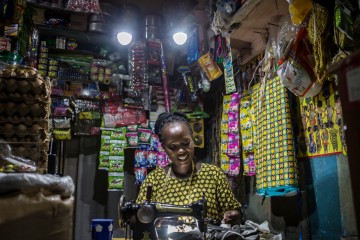- About
- Topics
- Picks
- Audio
- Story
- In-Depth
- Opinion
- News
- Donate
- Signup for our newsletterOur Editors' Best Picks.Send
Read, Debate: Engage.
| topic: | Climate action |
|---|---|
| located: | Malaysia |
| editor: | Ashley Yeong |
Malaysia is grappling with its fair share of climate woes. Prolonged and intense rainfall has displaced thousands and disrupted livelihoods due to erratic weather patterns, highlighting undeniable effects on the nation.
Sadly, the blow of climate change lands harder on developing nations. Despite contributing fewer carbon emissions, these countries face the harsh realities of climate change, heightening the challenges of adaptation and mitigation.
Malaysia is gearing up to make an impact at COP28, the UN's annual climate conference in Dubai next month. With its largest-ever delegation, led by Prime Minister Anwar Ibrahim, Malaysia signals a resolute commitment to a greener future. The nation's National Energy Transition Roadmap (NETR) will be spotlighted, too.
The NETR outlines an ambitious plan to break ties with fossil fuels, aiming for renewables to constitute 70% of Malaysia's capacity by 2050. The installed capacity currently stands at 25% of the total. Increasing renewable energy capacity will need an estimated $143.63 billion in investment until 2050.
To achieve carbon neutrality by 2050, the International Renewable Energy Agency (IRENA) estimates that Malaysia needs to double its investments to at least $375 billion. The pressing question remains: where will the funding come from?
Despite a breakthrough at COP27 in Egypt with establishing the Loss and Damage Fund, recent discussions hit a roadblock. Who looks after the fund, who pays for it, and who receives it?
The criteria determining who qualifies for the funds have become heated, limiting access to small island states, least developed nations, and particularly vulnerable countries. This categorisation places Malaysia, a middle-income country, on the sidelines, slowing its move toward cleaner and greener energy.
During the 78th Session of the United Nations General Assembly, Prime Minister Anwar emphasised the urgency for developed countries to honour their $100 billion yearly commitment to support developing nations in tackling the climate crisis. After all, there's only a point in setting international goals if adequate funds are available to implement them.
Malaysia's success at COP28 is still to be seen, but it has determined to secure funds for its energy transition at the two-week event.
Beyond lofty aspirations, tangible support is everything for nations, particularly those in the developing world, to move towards a greener future. It has to be quick, and it has to be now.
In the words of Prime Minister Anwar, "We have not a moment to waste."
Image by Omar Elsharawy.

